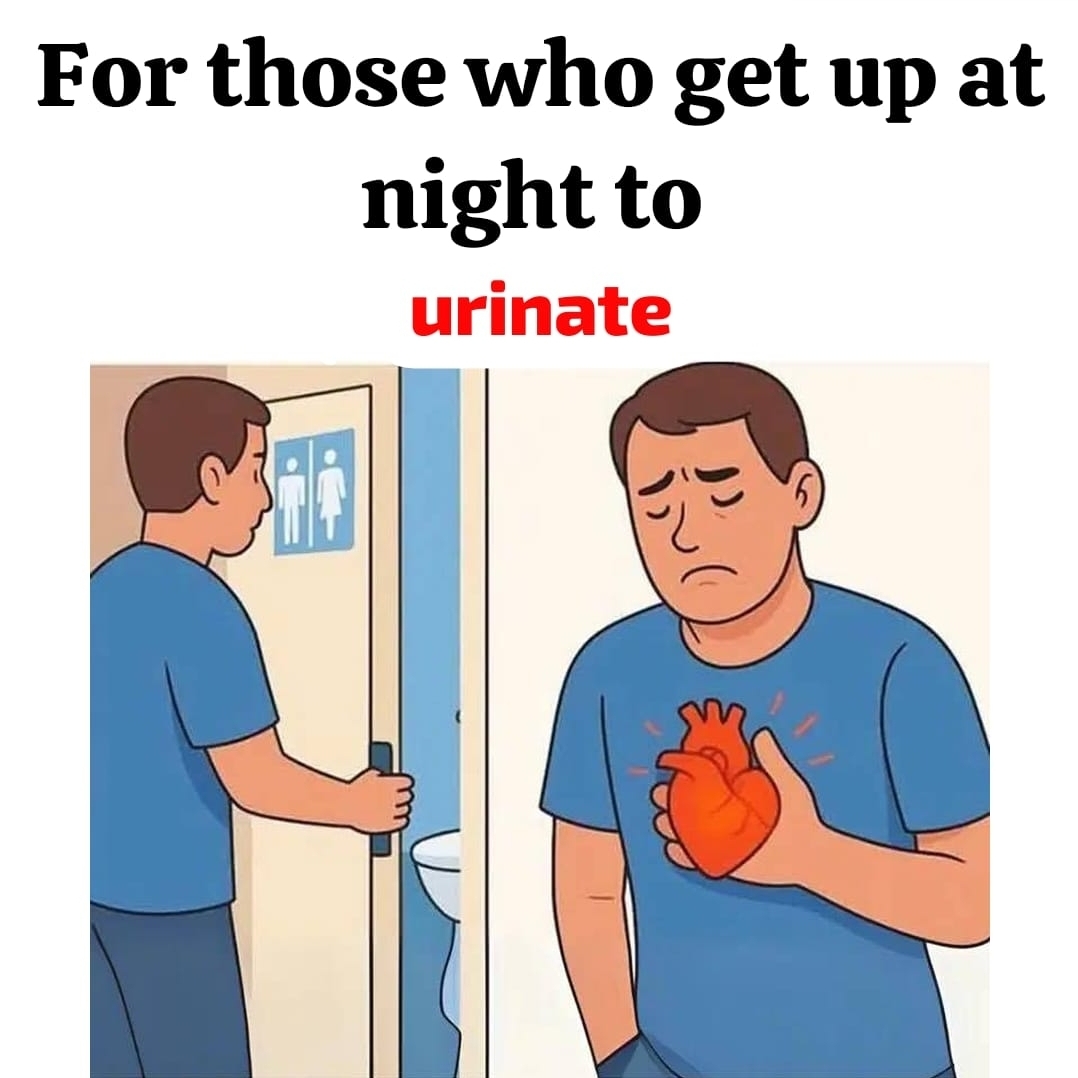Have you ever jolted awake in the middle of the night with an urgent need to use the bathroom—and wondered whether it was more than just a small inconvenience?
At first, it’s easy to shrug off a nighttime trip as nothing unusual. But what if your body is quietly trying to get your attention? Nighttime urination, known as nocturia, is often dismissed as harmless,
yet it can sometimes reveal underlying issues involving hormones, kidney function, heart health, or even sleep quality. Ignoring these subtle clues may mean overlooking early signs of conditions that impact long-term wellness.

Nighttime Urination: How Much Is Normal—and When Should You Worry?
Most people can sleep through the night without needing to get up. A single bathroom trip—especially after drinking fluids, caffeine, or alcohol in the evening—is usually considered normal. As we age, however, things naturally shift. The body produces less antidiuretic hormone (which helps reduce urine production at night), and bladder capacity may decline. This explains why nocturia tends to increase in older adults, particularly those over 60.
When Is Nighttime Urination a Red Flag?
Nocturia becomes concerning when it happens two or more times every night on a regular basis, especially if it interrupts restful sleep or affects daily life. Warning signs include:
Nightly interruptions without an obvious cause
A strong or uncomfortable urge to urinate during the night
Daytime sleepiness caused by broken sleep
Producing more urine at night than during the day (nocturnal polyuria)
Increased urination frequency overall
These patterns may indicate more than just a full bladder.
Potential Causes of Nocturia
Nighttime urination can stem from a variety of factors, some harmless and others medically significant:
1. Overactive Bladder (OAB)
Frequent contractions of the bladder create a persistent urge to urinate—even when it isn’t full.
2. Urinary Tract Infections (UTIs)
A burning sensation or constant urge to go can continue through the night.
3. Diabetes
Elevated blood sugar increases urine production as the body tries to eliminate excess glucose.
4. Heart Failure
Fluid buildup in the legs during the day is reabsorbed into circulation when lying down, increasing nighttime urine output.
5. Sleep Disorders
Conditions like insomnia or sleep apnea heighten awareness of bodily sensations, including a mildly full bladder.
6. Medications
Diuretics—or certain medications taken in the evening—can lead to increased nighttime urination.
Practical Ways to Reduce Nighttime Urination
Making simple adjustments can often help minimize nocturia:
Reduce fluid intake in the few hours before bedtime
Avoid caffeine and alcohol in the evening
Elevate your legs during the day to help redistribute fluid
Wear compression stockings if swelling is an issue
Take your time to fully empty your bladder before going to sleep
While these steps may ease symptoms, they aren’t a substitute for medical evaluation when nocturia becomes persistent.
When to Talk to a Healthcare Professional
If nighttime bathroom trips become frequent, disruptive, or bothersome, it’s wise to seek medical advice. A doctor may recommend keeping a bladder diary to record:
Fluid intake
Urine volume
Number of nighttime awakenings
They might also test for diabetes, infections, or bladder and kidney conditions to pinpoint the cause.
Conclusion
One nightly trip to the bathroom isn’t usually cause for alarm—especially as we age. But frequent awakenings shouldn’t be ignored. Nocturia can point to a wide spectrum of underlying issues, from simple lifestyle factors to more serious concerns such as heart disease, diabetes, or urinary tract problems.
By paying attention to patterns—how often you wake, how much urine is produced, and how you feel during the day—you gain valuable insight into your health. Small lifestyle changes may help, but persistent or worsening symptoms deserve medical attention.
What feels like a minor nuisance may actually be a subtle message from your body. Learning to distinguish between normal nighttime urination and signs of a deeper issue empowers you to protect your health, improve your sleep, and address potential problems before they escalate. Sometimes, the quietest signals carry the most important meaning.
